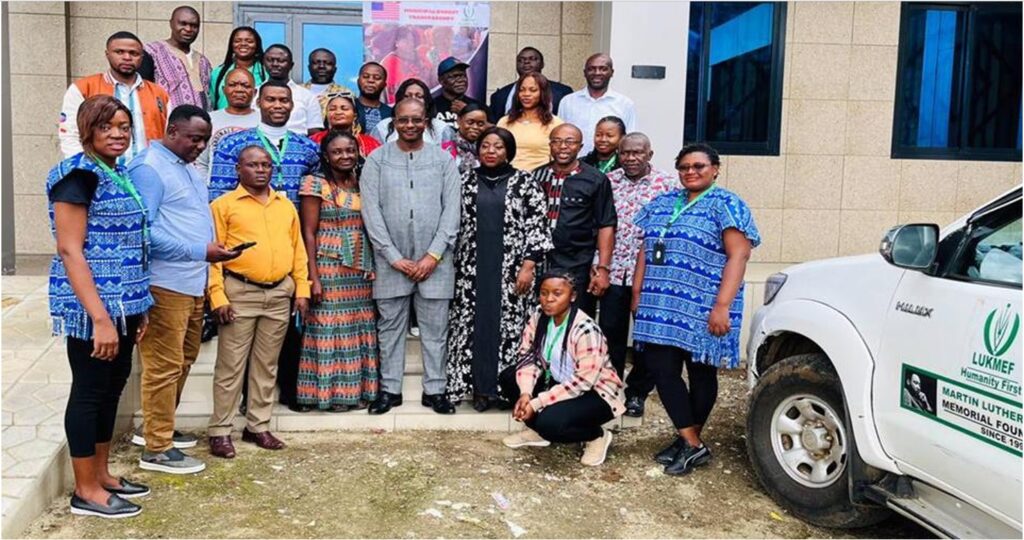From Skepticism to Civic Leadership: The Story of Chief Ekane in Tombel
When the project began in Tombel, many traditional leaders were unsure how fiscal transparency could relate to their traditional role. Among them was Chief Ekane, who initially believed that budgets were strictly a matter for council officials. However, after attending the LUKMEF-led workshop on “Traditional Leaders’ Roles in Public Budget Monitoring,” his perspective transformed.
For the first time, Chief Ekane learned how council budgets directly influence local development — from water systems to roads and schools. He began organizing monthly village meetings to discuss council priorities, urging his community to participate in budget hearings. The result was remarkable: citizens became eager to follow up on public projects, while the Tombel Council saw improved community collaboration in planning sessions.
Chief Ekane now refers to himself as a “community budget ambassador.” His transformation demonstrates how empowering traditional leaders can rebuild trust between citizens and local councils, ensuring that development is both transparent and people-driven.
The Voice That Educated Thousands: Martha’s Radio Revolution in Kumba
Martha, a young journalist at Lake Site Radio in Kumba, joined the FTIF project’s media training with little expectation. She had covered politics and culture but never thought of budget transparency as a media topic. The training opened her eyes to the power of the press in demystifying public budgets for ordinary people.
After the workshop, Martha began hosting a weekly radio segment titled “My Money, My Council,” where she simplified budget terms, interviewed local officials, and encouraged citizens to call in with questions. Her broadcasts quickly gained popularity across Meme Division, with farmers, traders, and students calling to understand how council budgets affect them.
Through her platform, Martha became a bridge between citizens and local authorities, transforming public curiosity into active participation. “Now people know that asking questions about money is not rebellion—it’s responsibility,” she proudly says.
Watchdogs of Development: How Youth Volunteers Became Accountability Champions
Before the project, youth participation in local governance was minimal. Many young people in Kumba felt sidelined and powerless. Through LUKMEF’s creation and training of watchdog committees, that narrative changed.
One such youth, Elvis, joined his local watchdog group out of curiosity. Within months, he and his peers learned how to track municipal projects, review budget allocations, and report inconsistencies. When a road rehabilitation project in Kumba II stalled, Elvis’ team engaged the council respectfully, using facts and documentation. The project was revived and completed.
Elvis now coordinates a youth network on budget transparency, mentoring others to take leadership roles. “We used to complain; now we contribute,” he says with pride.
Bridging the Digital Divide: Council Staff Embrace the Power of Technology
At the start, most councils had little to no online presence. Budget information was stored in dusty files, inaccessible to citizens. Through the project’s collaboration with Afroleadership, LUKMEF supported the creation of five digital budget platforms and trained council personnel to manage them.
One of the participants, Mrs. Neba, a council communication officer, recalls her fear of using technology. After the digital platform training, she mastered uploading budget summaries and publishing expenditure updates. Today, citizens in Kumba I can view council projects and timelines online.
“The platform has made us more accountable,” she says. “Instead of suspicion, people now come to our office with informed questions.” Her confidence and digital competence symbolize how technology can transform governance culture when people are given the right tools.
A Door Knock That Changed Minds: Sarah the Community Mobilizer
When Sarah, a young community mobilizer, was recruited to conduct door-to-door sensitization, she faced resistance. Many residents dismissed her, claiming councils never listen. Undeterred, she used storytelling and relatable examples to explain how public participation could improve local services.
Her persistence paid off. Over time, she built trust, especially among women traders who began attending council sessions for the first time. By the end of the project, Sarah had personally reached more than 600 households in Kumba III.
She reflects proudly: “Before, people saw governance as a distant issue. Now they know their voices matter.” Sarah’s story epitomizes how one person’s passion can spark collective change and breathe life into numbers.

